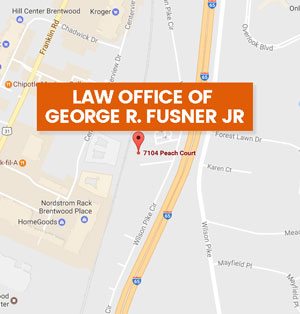CIVIL 13.14 Procurement of Breach of Contract
The plaintiff is entitled to recover for procurement of breach of contract if the plaintiff establishes all of the following:
1 There was a contract;
2 The defendant had knowledge of the existence of the contract;
3 The defendant intended to bring about or cause its breach;
4 The defendant acted maliciously;
5 The contract was in fact breached;
6 Defendant’s actions were the legal cause of the breach;
7 Plaintiff suffered damages as a result of the breach.
TNPRACJIC 13.14
CIVIL 13.15 Procurement of Breach of Contract—Damages
If you find that plaintiff is entitled to recover damages for procurement of breach of contract, you shall award plaintiff an amount that will compensate plaintiff for all damages legally caused by defendant’s interference with plaintiff’s contract. The award of damages shall include compensation for:
1 The pecuniary loss of the benefits of the contract, that is, the sum of money necessary to place the plaintiff in the position that plaintiff would have been in if the contract had been performed according to its terms. [This includes plaintiff’s loss of profits, if the injury involved is interference with a business relationship.]
2 Any consequential losses legally caused by the interference. A consequential loss is any direct out-of-pocket expense incurred by a party as a direct and legal result of a breach of contract. The out-of-pocket expense must have been within the contemplation of the parties to the contract.
3 Emotional distress and actual harm to plaintiff’s reputation, where such losses should have been reasonably expected to result from the interference.
TNPRACJIC 13.15
CIVIL 13.16 Intentional Interference With Business Relationship
The plaintiff seeks to recover damages that plaintiff alleges were caused by the defendant’s wrongful conduct. The law does not permit a plaintiff to recover damages from a defendant who has engaged in proper competitive business practices. However, the law does prohibit a defendant from unfairly interfering with a business relationship by using improper means or by acting with the predominant purpose of injuring the plaintiff.
To recover damages, plaintiff must prove all of following by a preponderance of the evidence.
1 [plaintiff had a specific, existing business relationship with __________[or][plaintiff had a prospective business relationship with an identifiable class of persons]; and
2 defendant had knowledge of that relationship [and not a mere awareness of the plaintiff’s business dealings with others in general]; and
3 the [prospective] business relationship ended; and
4 the defendant intentionally by improper motive or improper means caused the relationship to end; and
5 the defendant’s action caused damage to the plaintiff.
TNPRACJIC 13.16
CIVIL 11.47 Consumer Protection Claim Brought With a Separate Claim for Punitive Damages Under Another Theory
Plaintiff has sued defendant under two separate claims. First, the plaintiff has sued defendant under the Tennessee Consumer Protection Law. Second, the plaintiff has sued the defendant under the law of [fraud][negligent misrepresentation][deceit].
[charge Tennessee Consumer Protection Law and damage section T.P.I.—Civil 11.45]
[charge other theory, damages and punitive damages sections]
[go over verdict form]
You must consider each claim separately and determine whether the plaintiff should recover under one of the claims, both of the claims or neither of the claims. If you find in favor of the plaintiff the plaintiff will be awarded the amount of damages, if any, you find to be appropriate. However, if you find for the plaintiff on both the Tennessee Consumer Protection Law claim and the claim based on [fraud][negligent representation][deceit], the plaintiff will not be permitted to collect damages under both claims but instead will have to choose whether to accept the damages under the Tennessee Consumer Protection Law or the damages under the claim based on [fraud][negligent representation][deceit]. In other words, if you decide the plaintiff should recover monetary damages from the defendant the plaintiff will be able to recover those damages only once, even if you find that the plaintiff has proved both the Tennessee Consumer Protection Law claim and the claim based on [fraud][negligent representation][deceit].
TNPRACJIC 11.47



